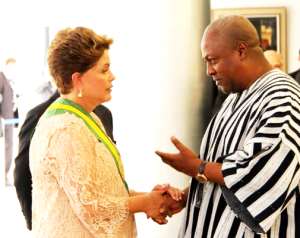
Economic well-being is created in a production process. This simply means that, all economic activities should aim directly or indirectly at satisfying human needs. In production, however, there are two features which explain increasing economic well-being and these are; improving quality-price-ratio of commodities and a likely increase in income from growing and established of an efficient market production. There is a global consensus that we need new measures of progress. It is critical that those measures clearly reflect what we value- something that current approach fails to do.
For the management of economy of every country, there are three forms of production that take place. These are market production, public production, and household production. Out of these three forms of economic productions, the market production is the only institution that creates and distributes income to stakeholders and finance both public and household production. Research has confirmed that, economic well-being increases due to the growth of incomes that are gained from the growing and sustenance of a more efficient market production. A successful society is one where economic activity delivers high levels of sustainable wellbeing for all its citizens.
Managers of Ghana's economy should come out boldly and with much honesty, to tell the chunk of civil servants that, their level of productivity is nothing to right home about. Although, this in a sense may not be a laudable argument based from the angle they may be positioning themselves, however managers of Ghana's economy should vault beyond research findings and propose how public sector performance can be boosted; perhaps through proper systems of monitoring and evaluation of the performance of public sector workers. The theoretical and verbal gymnastics would solve no problem of any sort unless the economic managers decide to be pragmatic in their approach based on their findings and implement the appropriate measures to up productivity in the public sector of Ghana's economy.
A developing country like Ghana that has adopted both the free market and socialist approach in managing its economy, there is a great challenge always hovering around. This challenge emanates from the double standards assumed by the government or what others, preferably may refer to as conflict of interest, on the part of the government. In such an economic module, the government tends to serve two purposes, one being a referee or a mediator of market operations and also a substantive market production system or a player in the market. This phenomenon which has been an accepted norm in our politico-economic system for years needs a change. And unless the country has a strong leadership, problems will always arise in this seemingly confused economic paradigm of ours.
A cursory look at the Ghanaian economy presently gives an unadulterated figment that, government's effort to empower the private sector will still not give a positive balance sheet to its financial statement especially when the productivity level of the public sector is still low comparative to investment in it wages. On those bases the effort of external agencies and foundations investing their effort to empower the SMEs sector to boost the economy of Ghana will not show a significant effect.
Such a challenge haunting the present managers of the economy of Ghana is likely to affect any new elected economic manager, if the fundamental issue of productivity in the public sector is not addressed immediately. This is because; the efficiency of government spending is directly proportional to productivity level of a state.
The productivity issues in the public sector calls for all economic think tanks in Ghana to come out with ideas that will address the menace immediately. This in the view of BGi will lead to prudent proportional spending on areas such as infrastructure development, help government to reduce the spate of inflation and also support the strengthening of macroeconomic indices which will reflect in a paralleled growth and development, which in turn will lead to the well-being of the masses.
Tweneboah Senzu PhD.
Bastiat Ghana Institute
(Free-market Economic Think Tank Institute)
Bastiat Ghana Free Research Articles to Support Government of Ghana Actions towards Better Ghana for the Citizens.
www.bastiatghana.org




 Western North been sidelined for far too long; address our needs before 2024 ele...
Western North been sidelined for far too long; address our needs before 2024 ele...
 Effutu: 'Stop eating at night and take care of your health' — Afenyo Markin advi...
Effutu: 'Stop eating at night and take care of your health' — Afenyo Markin advi...
 Akufo-Addo's desperate attempt to disrupt Yagbonwura's 1st year anniversary cele...
Akufo-Addo's desperate attempt to disrupt Yagbonwura's 1st year anniversary cele...
 Armed robbers attack, rob Sethi Brothers Ghana Limited in Tema
Armed robbers attack, rob Sethi Brothers Ghana Limited in Tema
 SML deal: We commend Manasseh for holding gov't to account, Akufo-Addo for not s...
SML deal: We commend Manasseh for holding gov't to account, Akufo-Addo for not s...
 Our recall invocation is in good faith to consider three key issues – Majority
Our recall invocation is in good faith to consider three key issues – Majority
 You’re inviting bad luck upon yourself if you use Indian hair — Spiritualist war...
You’re inviting bad luck upon yourself if you use Indian hair — Spiritualist war...
 Ejisu by-election: Police questions Kwadaso MP, two others over bribery allegati...
Ejisu by-election: Police questions Kwadaso MP, two others over bribery allegati...
 Nana Kwame Bediako is Nkrumah’s reincarnate; he’ll be president if he appoints N...
Nana Kwame Bediako is Nkrumah’s reincarnate; he’ll be president if he appoints N...
 Dumsor: Mahama gave us ‘dum, dum, dum’ but we are now in the era of ‘dum sie sie...
Dumsor: Mahama gave us ‘dum, dum, dum’ but we are now in the era of ‘dum sie sie...
